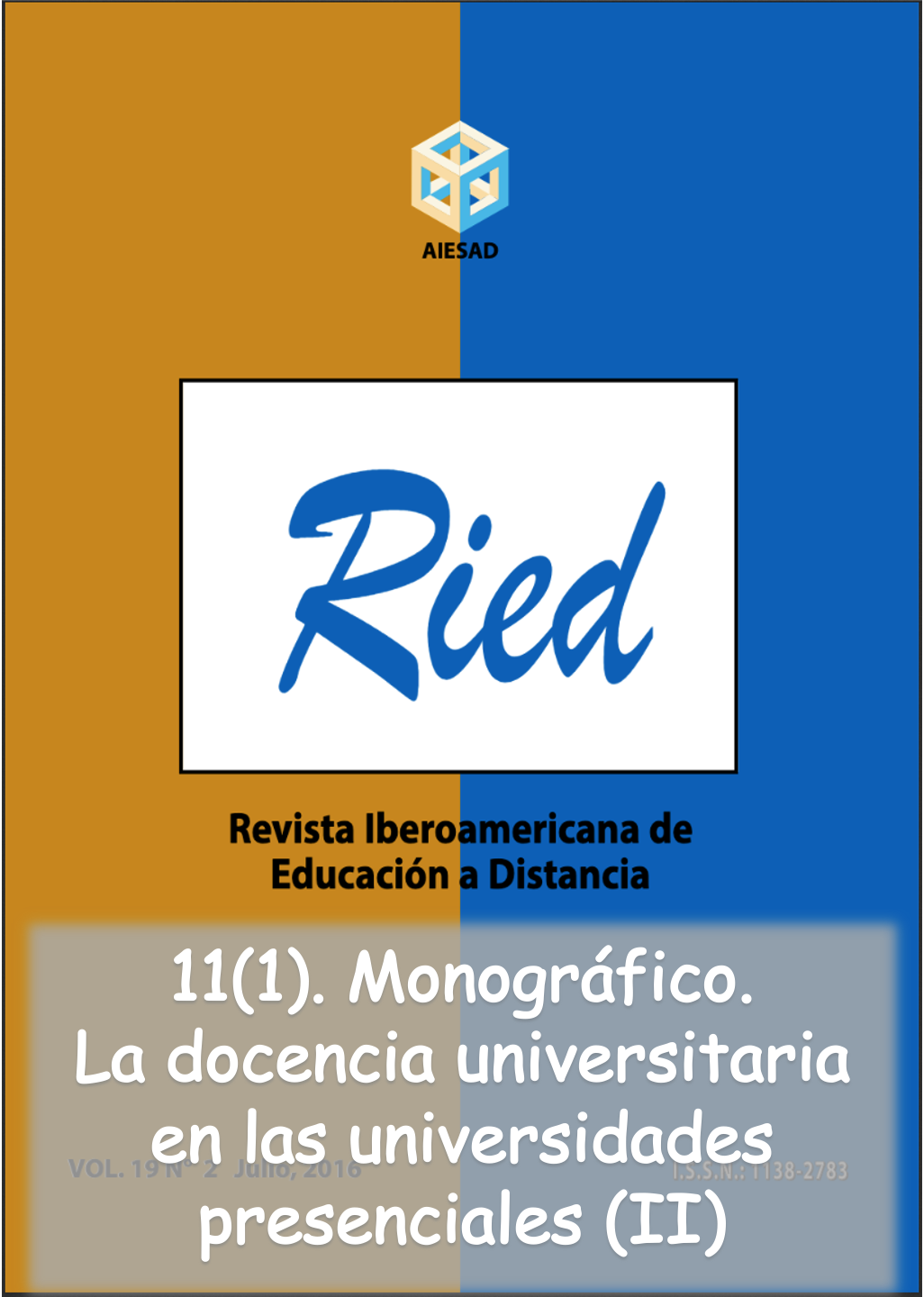How ICT could cooperate toward the socio- technological innovation in face to face university education
DOI:
https://doi.org/10.5944/ried.1.11.956Keywords:
socio-technological innovation, ICT curricula articulation, flexible university education, faculty training in new conceptions, methods and competences, critical approachesAbstract
The ICT high pressure in daily days of the socio- economic and politic- cultural of the information and knowledge society penetrates at every formative area of people and groups, specially at face to face university education level, not without presenting reluctances and dilemas. The technological innovations in education means meanly, to give another sense to the everyday pedagogic interaction. ICT build “learning environments” which should to flexibilize face to face tradicional education but as everbody knows, they are not panaceas. To desmistify and reformulate university conceptions and practices within the currículum and the training of faculty, could be done with the help of ICT in order to develop complex competences and reflective processes. To achieve expertise in order to access , manage , integrate, distribuite, evaluate, produce and recreate information is very important in university teaching to transform it and at the same time, to rebuild and articulate ICT in a mix of virtual and conventional educational processes and results. To flexibilize attittutes and proposals incorporating ICT to the university curriculum and organization will help to renovate educational practices towards substantial and effective changes with formative pertinence.
Downloads
Downloads
How to Cite
Issue
Section
License
The articles that are published in this journal are subject to the following terms:
1. The authors grant the exploitation rights of the work accepted for publication to RIED, guarantee to the journal the right to be the first publication of research understaken and permit the journal to distribute the work published under the license indicated in point 2.
2. The articles are published in the electronic edition of the journal under a Creative Commons Attribution 4.0 International (CC BY 4.0) license. You can copy and redistribute the material in any medium or format, adapt, remix, transform, and build upon the material for any purpose, even commercially. You must give appropriate credit, provide a link to the license, and indicate if changes were made. You may do so in any reasonable manner, but not in any way that suggests the licensor endorses you or your use.
3. Conditions for self-archiving. Authors are encouraged to disseminate electronically the OnlineFirst version (assessed version and accepted for publication) of its articles before publication, always with reference to its publication by RIED, favoring its circulation and dissemination earlier and with this a possible increase in its citation and reach among the academic community.









